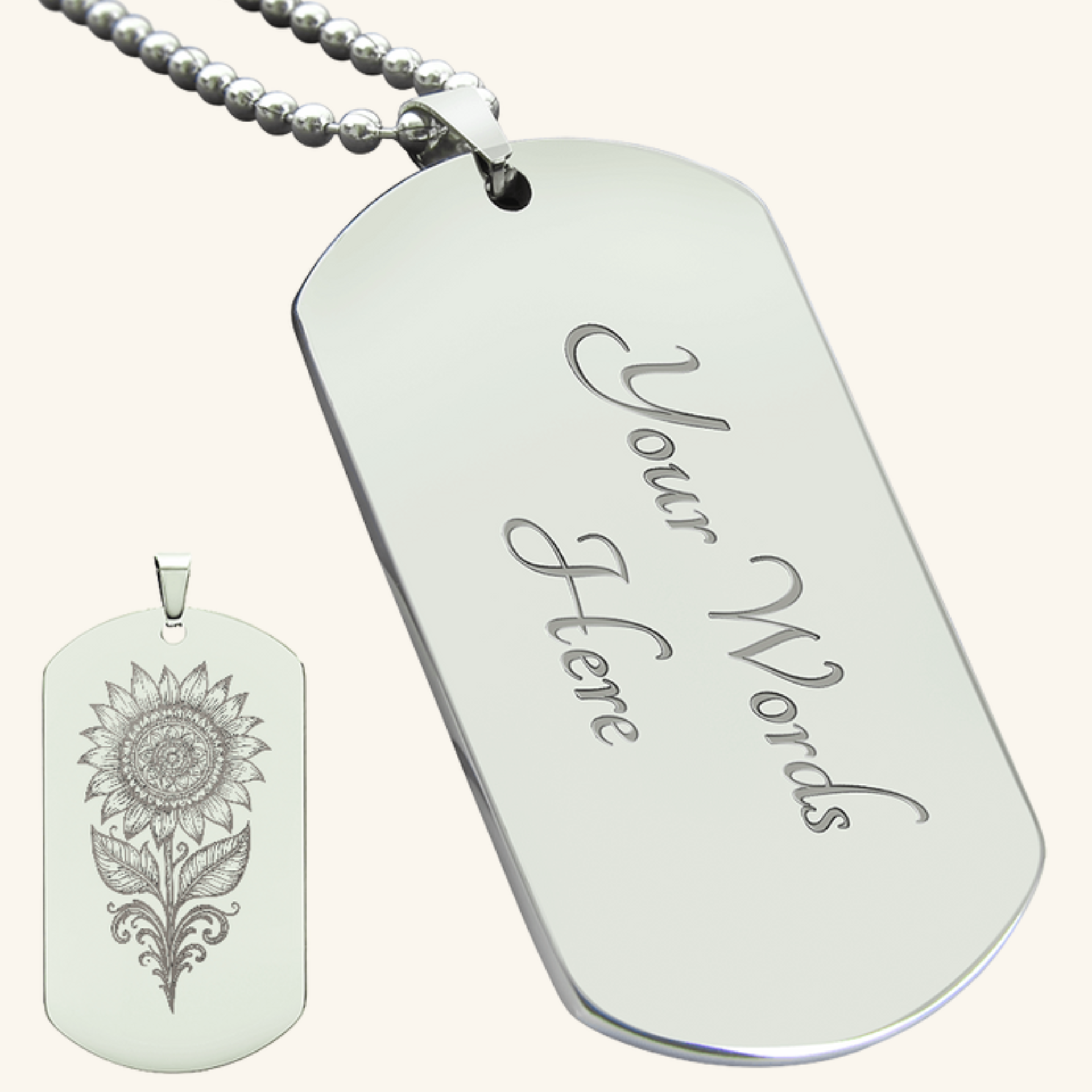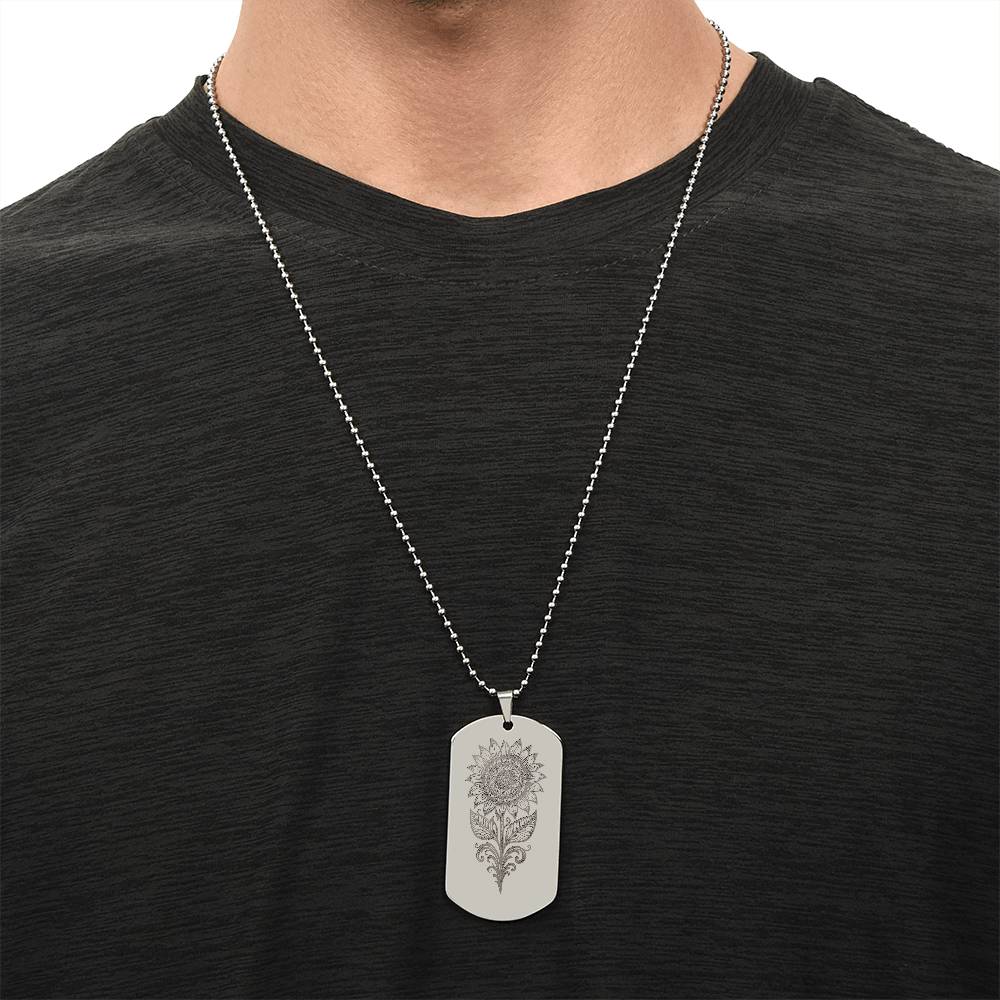Autism Support Groups for LGBTQ+ Individuals

Written by HeyASD.com Team
Autism support groups specifically designed for LGBTQ+ individuals can provide a safe and inclusive space for individuals who identify as both autistic and LGBTQ+. These support groups address the unique challenges faced by LGBTQ+ individuals with autism and offer support, resources, and a sense of community. In this article, we will explore the benefits of autism support groups for LGBTQ+ individuals, how to find and join these groups, different types of support groups available, effective strategies for running these groups, promoting mental health and well-being, advocacy and activism, and success stories of individuals who have benefited from these support groups.
Key Takeaways
- Autism support groups for LGBTQ+ individuals provide a safe and inclusive space for individuals who identify as both autistic and LGBTQ+.
- These support groups address the unique challenges faced by LGBTQ+ individuals with autism and offer support, resources, and a sense of community.
- Benefits of autism support groups for LGBTQ+ individuals include creating a safe and inclusive space, building a supportive community, and sharing experiences and strategies.
- Finding and joining autism support groups for LGBTQ+ individuals can be done through online resources and directories, local LGBTQ+ centers and organizations, and referrals from healthcare professionals.
- Different types of autism support groups for LGBTQ+ individuals include peer support groups, therapeutic support groups, and social and recreational groups.
Understanding Autism and LGBTQ+ Identity

The Intersection of Autism and LGBTQ+ Identity
Sexual and gender identity differences occur in the autistic population at a higher rate than the general population. Recent research has shed light on the impact of these differences on the health and wellness of autistic LGBTQIA+ individuals. Clinicians play a crucial role in addressing this impact and supporting their patients. By understanding the unique challenges faced by this intersectional community, clinicians can provide tailored and inclusive care. It is important to create a safe and accepting environment where individuals can explore and express their identities. Additionally, clinicians can offer resources and support to help navigate the complexities of both autism and LGBTQ+ experiences. Together, we can work towards promoting the well-being and empowerment of autistic LGBTQ+ individuals.
Challenges Faced by LGBTQ+ Individuals with Autism
LGBTQ+ individuals with autism face unique challenges in their daily lives. The intersection of their LGBTQ+ identity and autism can create additional barriers to acceptance and understanding. These individuals may struggle with social interactions, communication, and sensory sensitivities, which can make it difficult to navigate LGBTQ+ spaces and communities. Facilitating inclusivity and providing support tailored to their specific needs is crucial in ensuring their well-being and mental health.
Supporting Autistic LGBTQ+ Individuals
Supporting Autistic LGBTQ+ individuals is crucial in creating an inclusive and affirming environment. It is important to acknowledge and validate the unique experiences and challenges faced by this community. Here are some ways to provide support:
- Promote education and awareness about the intersection of autism and LGBTQ+ identity to foster understanding and empathy.
- Advocate for inclusive policies that protect the rights and well-being of Autistic LGBTQ+ individuals.
- Create safe spaces where individuals can express their authentic selves without fear of judgment or discrimination.
- Offer resources and referrals to LGBTQ+-friendly healthcare professionals who understand the specific needs of Autistic individuals.
- Encourage self-advocacy and empower Autistic LGBTQ+ individuals to speak up for their rights and needs.
Remember, supporting Autistic LGBTQ+ individuals is about creating a community that embraces diversity and celebrates the unique strengths and identities of each individual.
Benefits of Autism Support Groups for LGBTQ+ Individuals

Creating a Safe and Inclusive Space
We proudly embrace our exceptional minds, viewing neurodiversity as a source of strength. Our differences are not deficits but facets of a kaleidoscope that adds depth and variety to our collective experience. We are each contributing to the world in our own unique way. This safe space we've cultivated is a sanctuary where authenticity is welcomed and celebrated. We understand the challenges accompanying a later-in-life diagnosis and the process of self-discovery that often precedes it. Within our group, you'll find understanding hearts, listening ears, and a shared commitment to supporting one another through the highs and lows. Our discussions are a tapestry of shared experiences, wisdom, and humor. We explore topics ranging from self-care strategies to navigating the social nuances of a world created by and run by neurotypicals, and we take joy in each other's successes, both big and small. In this space, you are not defined by your challenges but celebrated for the unique perspective you bring. As we dispel myths and challenge stereotypes, we pave the way for a more inclusive and understanding world where
Building a Supportive Community
Building a supportive community is crucial for the well-being of autistic LGBTQ+ individuals. It provides a safe and accepting space where they can connect with others who understand their unique experiences. In this community, individuals can share their challenges, triumphs, and strategies for navigating the intersection of autism and LGBTQ+ identity. By fostering a sense of belonging and understanding, support groups create an environment where individuals can feel validated and supported in their journey.
Sharing Experiences and Strategies
Sharing experiences and strategies is a vital aspect of autism support groups for LGBTQ+ individuals. By coming together and sharing their unique journeys, members can find solace in knowing that they are not alone. It provides an opportunity to learn from one another and gain valuable insights into navigating the intersection of autism and LGBTQ+ identity. Through open and honest discussions, individuals can explore different coping mechanisms, self-care strategies, and effective communication techniques. This exchange of knowledge and experiences fosters a sense of community and empowerment.
In addition to personal anecdotes, support groups may also provide structured resources and tools. For instance, members can benefit from a list of recommended books, articles, and websites that offer further guidance and information. These resources can cover not only specific strategies to use for others and yourself, but relevant theories and early education research that can provide additional context to your understanding.
Furthermore, support groups may organize workshops or presentations where experts in the field share their expertise. These sessions can delve deeper into specific topics related to autism and LGBTQ+ identity, providing participants with valuable insights and practical advice. Overall, sharing experiences and strategies in autism support groups for LGBTQ+ individuals creates a supportive and inclusive environment where everyone can learn, grow, and thrive.
Finding and Joining Autism Support Groups for LGBTQ+ Individuals

Online Resources and Directories
When searching for autism support groups for LGBTQ+ individuals, online resources and directories can be valuable tools. These platforms provide a centralized hub where individuals can find information about various support groups that cater specifically to the needs of the autistic LGBTQ+ community. Online resources and directories offer a convenient way to explore different options, compare group offerings, and connect with like-minded individuals. They often include filters and search functions that allow users to narrow down their search based on location, age group, interests, and other relevant criteria. By utilizing online resources and directories, individuals can easily find and join autism support groups that align with their unique needs and preferences.
Local LGBTQ+ Centers and Organizations
In addition to online resources and directories, there are also local LGBTQ+ centers and organizations that provide support for autistic individuals. These centers offer a safe and inclusive space where individuals can connect with others who share similar experiences and challenges. They often host support groups specifically for autistic LGBTQ+ individuals, providing a supportive community where they can share their experiences and strategies. These support groups can be a valuable resource for autistic individuals who may feel isolated or misunderstood in mainstream LGBTQ+ or autism communities.
Referrals from Healthcare Professionals
When seeking out autism support groups for LGBTQ+ individuals, it can be helpful to ask for referrals from healthcare professionals. Healthcare providers who specialize in autism or LGBTQ+ issues may have knowledge of local support groups or resources that cater specifically to the needs of autistic individuals who identify as LGBTQ+. They can provide valuable recommendations and guidance on finding the right support group for you.
Additionally, healthcare professionals can offer insights into the intersectional challenges faced by LGBTQ+ individuals with autism and provide strategies for addressing these challenges within a support group setting. They may also be able to connect you with other professionals who can provide specialized services, such as therapists who are experienced in working with both autism and LGBTQ+ individuals.
Remember, healthcare professionals are there to support you and help you navigate the complexities of your identity and autism. Don't hesitate to reach out to them for assistance in finding the right autism support group for you.
Types of Autism Support Groups for LGBTQ+ Individuals

Peer Support Groups
Peer support groups provide a safe and inclusive space for individuals who are LGBTQ+. These groups offer a supportive community where members can share their experiences and strategies. By connecting with others who understand their unique challenges, autistic LGBTQ+ individuals can find validation and acceptance. Peer support groups also provide an opportunity to build social connections and develop a sense of belonging. Through these groups, individuals can find strength and empowerment in their shared experiences.
Therapeutic Support Groups
Therapeutic support groups provide a safe and nurturing space for autistic LGBTQ+ individuals to explore their emotions, build resilience, and develop coping strategies. These groups are facilitated by trained professionals who understand the unique challenges faced by this community. In a therapeutic support group, participants can share their experiences, receive validation and support, and learn from others who have similar lived experiences. The group setting allows for peer connections and the opportunity to develop a sense of belonging and community.
Benefits of Therapeutic Support Groups for Autistic LGBTQ+ Individuals
- Emotional support: Therapeutic support groups offer a space where individuals can express their emotions and receive validation and understanding from others.
- Coping strategies: Participants can learn and practice coping strategies to manage stress, anxiety, and other mental health challenges.
- Skill-building: Therapeutic support groups may provide opportunities for skill-building in areas such as communication, self-advocacy, and self-care.
- Peer connections: Connecting with others who share similar experiences can reduce feelings of isolation and provide a sense of belonging.
- Validation and acceptance: Being in a supportive environment where one's identity is acknowledged and accepted can promote self-acceptance and self-esteem.
Joining a therapeutic support group can be a valuable step towards finding support, understanding, and empowerment for autistic LGBTQ+ individuals.
Social and Recreational Groups
In addition to peer support groups and therapeutic support groups, there are also social and recreational groups available for autistic LGBTQ+ individuals. These groups provide opportunities for individuals to engage in fun and enjoyable activities while connecting with others who share similar experiences. Participating in social and recreational activities can help reduce feelings of isolation and promote a sense of belonging within the community. Some examples of social and recreational groups include:
Effective Strategies for Autism Support Groups for LGBTQ+ Individuals

Creating a Welcoming Environment
In our Autism Support Group for LGBTQ+ individuals, we prioritize creating a welcoming environment where everyone feels accepted and understood. We recognize that each person's journey is unique, and we respect and adapt our language to ensure inclusivity. Our goal is to provide a supportive and accepting space for individuals at all stages of their identity exploration, whether they have fully embraced their identity or are still in the process of self-discovery. We believe that neurodiversity is a strength, and we celebrate the authenticity and diversity of our members. Join us to connect with understanding hearts and find a community that embraces and supports you.
Implementing Person-Centered Approaches
Implementing person-centered approaches is crucial in providing effective support for autistic individuals. By focusing on the individual's unique needs, preferences, and strengths, professionals can create a supportive environment that promotes their overall well-being. Person-centered approaches involve actively involving the individual in decision-making processes, respecting their autonomy, and valuing their lived experiences. This approach recognizes that each person with autism has their own unique journey and should be empowered to make choices that align with their goals and aspirations. It also emphasizes the importance of building meaningful relationships and fostering a sense of belonging within the support group.
Addressing Intersectional Challenges
Addressing intersectional challenges is crucial in providing effective support for autistic LGBTQ+ individuals. It is important to recognize that individuals within this community may face unique experiences and barriers due to the intersection of their autism and LGBTQ+ identities. Therapy tool can be a valuable resource in addressing these challenges, providing a safe space for individuals to explore their identities, navigate social relationships, and develop coping strategies. By incorporating a person-centered approach, therapists can help individuals build resilience and self-acceptance.
Promoting Mental Health and Well-being in Autism Support Groups for LGBTQ+ Individuals

Access to Mental Health Professionals
Access to mental health professionals is crucial for the well-being of autistic LGBTQ+ individuals. These professionals have the expertise to provide specialized support that addresses the unique challenges faced by this population. Whether it's dealing with anxiety, depression, identity development, or relationship issues, mental health professionals can offer guidance and therapeutic interventions.
In addition to traditional in-person therapy, many mental health professionals now offer telehealth services, which allow individuals to receive support from the comfort of their own homes. This is particularly beneficial for autistic individuals who may struggle with sensory overload or social anxiety in traditional therapy settings.
Finding the right mental health professional can be a daunting task, but there are resources available to help. Online directories and databases provide a convenient way to search for professionals who specialize in working with autistic individuals and the LGBTQ+ community. Local LGBTQ+ centers and organizations may also have recommendations or referrals.
It's important to consider factors such as language when seeking a mental health professional. Some individuals may feel more comfortable working with someone who speaks their native language, such as Serbian, Bosnian, Croatian, or Montenegrin. Additionally, finding a professional who is knowledgeable about and sensitive to the experiences of BIPOC individuals can be crucial for creating a safe and inclusive therapeutic environment.
Remember, seeking support from a mental health professional is a sign of strength and self-care. It's important to prioritize your mental well-being and reach out for help when needed.
Coping Mechanisms and Self-Care Strategies
When it comes to coping with the challenges of autism and LGBTQ+ identity, it's important to prioritize self-care and develop effective coping mechanisms. Here are some strategies that can help:
- Practice mindfulness: Engage in activities that promote relaxation and self-awareness, such as meditation, deep breathing exercises, or yoga.
- Seek support: Reach out to trusted friends, family members, or support groups who can provide understanding and validation.
- Set boundaries: Establish clear boundaries to protect your mental and emotional well-being. Learn to say no when necessary and prioritize self-care.
- Engage in self-care activities: Find activities that bring you joy and help you relax, such as listening to music, taking a walk in nature, or engaging in a creative hobby.
- Educate yourself: Learn more about autism and LGBTQ+ issues to better understand your own experiences and advocate for yourself.
Remember, self-care is not selfish. Taking care of your own well-being is essential for navigating the intersection of autism and LGBTQ+ identity.
Promoting Positive Body Image and Self-Acceptance
Promoting positive body image and self-acceptance is crucial for the well-being of autistic LGBTQ+ individuals. It is important to create an environment that celebrates and embraces diverse bodies and identities. Art therapy can be a powerful tool in this process, allowing individuals to express themselves creatively and explore their emotions. Through art, individuals can gain a deeper understanding of their own bodies and develop a sense of self-acceptance. Art therapy provides a safe space for self-expression and can help individuals build a positive relationship with their bodies.
Advocacy and Activism for Autistic LGBTQ+ Individuals

Raising Awareness and Challenging Stigma
Raising awareness and challenging stigma are crucial steps in creating a more inclusive and accepting society for individuals with autism and LGBTQ+ identities. By educating the public about the unique experiences and challenges faced by these communities, we can foster empathy and understanding. It is important to highlight the intersectionality of autism and LGBTQ+ identity, as individuals may face additional barriers and discrimination. Through advocacy and activism, we can work towards promoting inclusive policies and services that support the rights and well-being of autistic LGBTQ+ individuals.
Promoting Inclusive Policies and Services
Promoting inclusive policies and services is crucial for creating a supportive environment for autistic LGBTQ+ individuals. By implementing policies that prioritize diversity and inclusion, organizations can ensure that all individuals, regardless of their sexual orientation or gender identity, feel welcome and accepted. This includes providing training and education to staff members to increase their understanding of the unique challenges faced by autistic LGBTQ+ individuals. Additionally, organizations can collaborate with LGBTQ+ and autism organizations to advocate for inclusive policies at a broader level.
Collaborating with LGBTQ+ and Autism Organizations
Collaborating with LGBTQ+ and Autism organizations is crucial for creating a more inclusive and supportive environment for Autistic LGBTQ+ individuals. By working together, these organizations can pool their resources, expertise, and networks to advocate for the rights and needs of this intersectional community. Some ways in which collaboration can be fostered include:
- Joint initiatives and campaigns: By joining forces, LGBTQ+ and Autism organizations can amplify their messages and raise awareness about the unique challenges faced by Autistic LGBTQ+ individuals.
- Training and education: Collaborative efforts can involve providing training and education to both LGBTQ+ and Autism organizations to enhance their understanding of the intersectionality between Autism and LGBTQ+ identity.
- Policy advocacy: By collaborating, organizations can advocate for inclusive policies and services that address the specific needs of Autistic LGBTQ+ individuals.
Collaboration between LGBTQ+ and Autism organizations is essential for creating a more inclusive society where Autistic LGBTQ+ individuals can thrive and access the support they need.
Success Stories: Impact of Autism Support Groups for LGBTQ+ Individuals

Personal Testimonials and Experiences
Personal testimonials and experiences are powerful tools for understanding the impact of autism support groups for LGBTQ+ individuals. Hearing directly from individuals who have participated in these groups can provide valuable insights into the benefits and positive outcomes they have experienced. Some common themes that emerge from these testimonials include:
- Increased sense of belonging and acceptance within a community that understands and supports their unique experiences.
- Improved mental health and well-being, with individuals reporting reduced feelings of isolation, anxiety, and depression.
- Development of coping strategies and self-care techniques that help navigate the intersectional challenges faced by autistic LGBTQ+ individuals.
Joining an autism support group specifically designed for LGBTQ+ individuals can be a transformative experience. It provides a safe and inclusive space where individuals can share their stories, find support, and empower themselves and others.
Improved Mental Health and Social Well-being
Joining an autism support group specifically designed for LGBTQ+ individuals can have a significant positive impact on mental health and social well-being. These support groups provide a safe and inclusive space where individuals can connect with others who share similar experiences and challenges. By sharing their stories and strategies, members of the group can gain a sense of validation and belonging, which can help reduce feelings of isolation and loneliness.
In addition, being part of an autism support group can provide opportunities for peer support and the development of meaningful relationships. Members can offer each other emotional support, understanding, and empathy, which can be particularly valuable for LGBTQ+ individuals who may face additional challenges related to their identity. These connections can help improve overall well-being and provide a sense of community.
Furthermore, autism support groups often offer educational resources and workshops that focus on topics such as self-care, coping mechanisms, and self-acceptance. These resources can empower individuals to take control of their mental health and well-being. By learning and implementing effective strategies, individuals can develop resilience and improve their ability to navigate the intersection of autism and LGBTQ+ identity.
Joining an autism support group for LGBTQ+ individuals is not only an opportunity for personal growth and support, but it can also be a platform for advocacy and activism. By coming together as a collective, members of these groups can raise awareness about the unique challenges faced by autistic LGBTQ+ individuals and work towards promoting inclusive policies and services. Through collaboration with LGBTQ+ and autism organizations, these support groups can make a significant impact in creating a more inclusive and accepting society for all.
Empowerment and Self-Advocacy
Join a support group for Autistic women navigating late-in-life diagnoses (or self-diagnosis) that values and uplifts each other, lighting the way for a more inclusive and compassionate future. When selecting gifts for someone highly sensitive, it's important to consider options that address their unique sensory needs.
Conclusion
In conclusion, autism support groups for LGBTQ+ individuals play a crucial role in providing a safe and inclusive space for individuals who navigate the intersection of autism and LGBTQ+ identity. These support groups offer a range of benefits, including the opportunity to build a supportive community, share experiences and strategies, and promote mental health and well-being. Finding and joining these support groups can be done through online resources, local LGBTQ+ centers, and referrals from healthcare professionals. Effective strategies for these support groups include creating a welcoming environment, implementing person-centered approaches, and addressing intersectional challenges. Through advocacy and activism, these groups also work towards raising awareness, promoting inclusive policies and services, and collaborating with LGBTQ+ and autism organizations. The success stories of these support groups highlight the positive impact they have on the mental health, social well-being, and empowerment of autistic LGBTQ+ individuals. By providing a platform for personal testimonials and experiences, these support groups contribute to the overall well-being and self-advocacy of their members.
Join Hundreds of Autistic Adults Feeling
More Comfort in Their Own Skin
Use code WELCOME10 for 10% off your first order.
Start Your Comfort JourneyFrequently Asked Questions
What is the intersection of autism and LGBTQ+ identity?
The intersection of autism and LGBTQ+ identity refers to individuals who identify as both autistic and part of the LGBTQ+ community. This can include individuals who are autistic and identify as lesbian, gay, bisexual, transgender, or queer.
What challenges do LGBTQ+ individuals with autism face?
LGBTQ+ individuals with autism may face unique challenges related to their dual identities. They may experience difficulties in finding acceptance and understanding from both the LGBTQ+ community and the autism community. They may also face discrimination, bullying, and social isolation.
How can we support autistic LGBTQ+ individuals?
Supporting autistic LGBTQ+ individuals involves creating a safe and inclusive environment where they can be their authentic selves. It also includes providing access to resources, support groups, and mental health services that address their specific needs.
What are the benefits of autism support groups for LGBTQ+ individuals?
Autism support groups for LGBTQ+ individuals provide a safe and inclusive space where they can connect with others who share similar experiences. These groups help in building a supportive community, sharing experiences and strategies, and promoting mental health and well-being.
How can I find and join autism support groups for LGBTQ+ individuals?
You can find and join autism support groups for LGBTQ+ individuals through online resources and directories, local LGBTQ+ centers and organizations, and referrals from healthcare professionals.
What types of autism support groups are available for LGBTQ+ individuals?
There are different types of autism support groups available for LGBTQ+ individuals, including peer support groups, therapeutic support groups, and social and recreational groups. These groups cater to the specific needs and interests of autistic LGBTQ+ individuals.
What are some effective strategies for autism support groups for LGBTQ+ individuals?
Effective strategies for autism support groups for LGBTQ+ individuals include creating a welcoming environment, implementing person-centered approaches, and addressing intersectional challenges. These strategies ensure that the needs of autistic LGBTQ+ individuals are met and their voices are heard.
How do autism support groups promote mental health and well-being for LGBTQ+ individuals?
Autism support groups promote mental health and well-being for LGBTQ+ individuals by providing access to mental health professionals, teaching coping mechanisms and self-care strategies, and promoting positive body image and self-acceptance.
On This Page
Frequently asked questions
How can I find autism support groups that are welcoming to LGBTQ+ individuals?
What are some ways autism support groups help with mental health challenges in the autistic LGBTQ+ community?
How do autism support groups create safe and inclusive spaces for people with intersecting identities?
What types of support groups are available for autistic LGBTQ+ individuals, and how do they differ?
Are there sensory-friendly products, like calming blankets or sensory tools, that can help me feel more comfortable in support group settings?
How can I advocate for myself and others within autism support groups focused on LGBTQ+ experiences?
What strategies do support groups use to address the unique challenges faced by autistic LGBTQ+ individuals?
How can connecting with others in these groups improve my sense of belonging and self-acceptance?
Can Autism-themed decor or clothing, such as t-shirts, help me express my identity and feel more connected to the autistic LGBTQ+ community?

About the HeyASD.com Team
Autistic‑owned • Values‑led • Sensory‑friendly design
We are autistic creators, writers, and advocates dedicated to producing resources that are practical, sensory-aware, and grounded in lived experience. Our mission is to make information and products that support the autistic community accessible to everyone, without jargon or condescension. Learn more about our team.
This article is written from lived autistic experience and an evidence-aware perspective. It is for general informational purposes only and should not be taken as medical, legal or therapeutic advice.
Always consult a qualified clinician or occupational therapist for individual needs and circumstances.

About Our ASD Blog
HeyASD is more than a store, it’s a calm, supportive space for autistic adults and the people who care about them. Explore identity-affirming stories, sensory regulation tools, and uplifting resources from our community.
Thank you for reading. We hope these resources bring comfort and clarity.









































